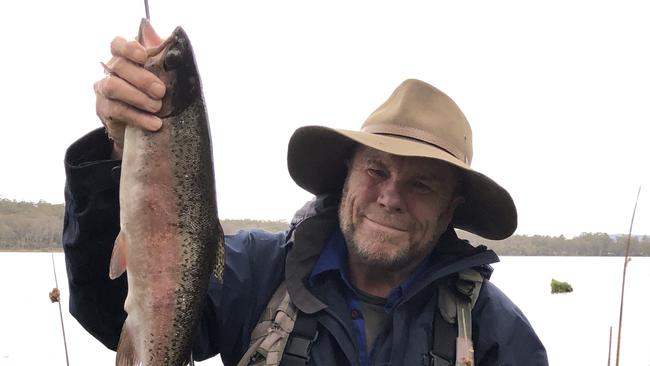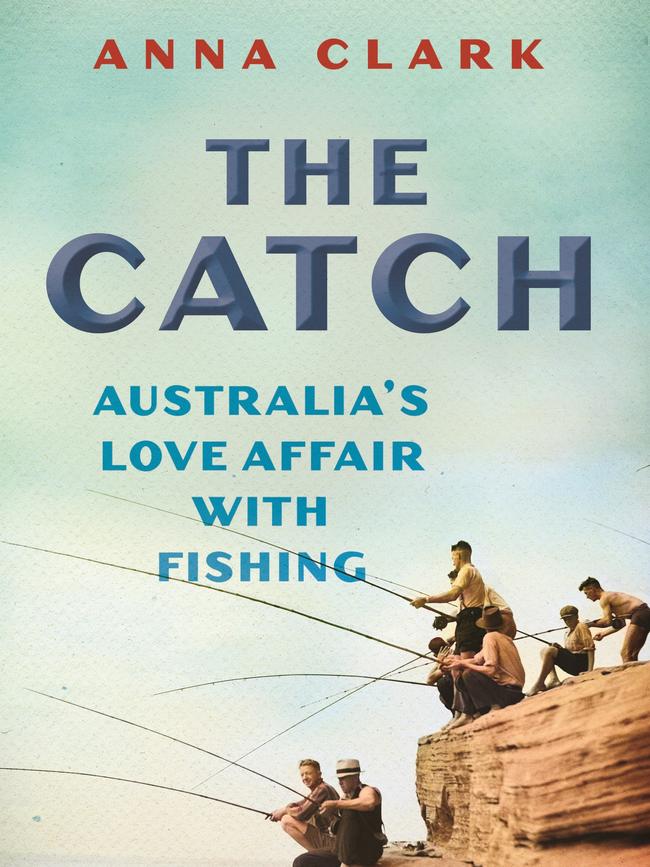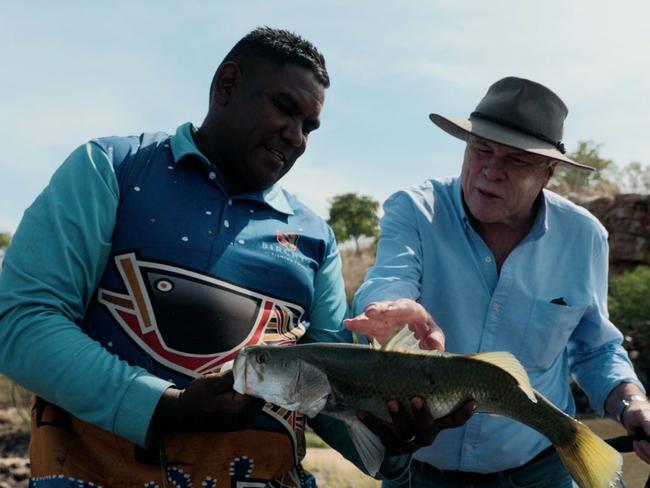Anna Clarke’s The Catch review: this book had Charles Wooley hooked
From ancient Indigenous practices to more modern ones, Anna Clark’s history of fishing in Australia hooked me with her first cast.

In her book about the history of fishing in Australia, Anna Clark hooked me with her first cast.
“When they shut their eyes and pause for a minute, fishers have a place to go in their mind. A special place, a fishing place. Mine is called Paradise, but you won’t find it on any map.”
Clark is a professor of history, a fisher of facts who also fishes for fish. Her book, The Catch: Australia’s Love Affair with Fishing, takes only a couple of hours to read but is a fully informative account of fishing in this country, from ancient Indigenous practices through to the present day. For those who want to know a lot more, the historian has been most punctilious with 40 pages of Endnotes and Bibliography.

But what delighted me with this book is that while the author is a well-regarded academic historian, she is much more; she is a piscator, a hunter of fish, and she knows her readers are too.
Clark knows so much more than the facts of fishing. She knows why we fish. That it is, as her book title states, “a love affair”.
“I can be anywhere – hanging out the washing, sitting in traffic, waiting at the bus stop – and this glorious daydream appears. When the sun catches the side of my face, I close my eyes and I’m there, standing on the water’s edge at Paradise in the late afternoon.”
As a lifelong piscator myself, I have to say Anna Clark speaks for all of us.
For her, it’s the coast. For me, it’s a lowland stream or a highland lake but always at that same time in the same slating afternoon light; those golden hours, when the world looks its best and the fish are a tad more co-operative.
Or at least so it always seems in Paradise.
The other Australian fishy paradise Clark writes about doesn’t just exist in some imagined gestalt. It’s there in solid research. She sources the earliest colonial records and takes us time-travelling back to unimaginably great fishing in early Sydney.
Aboriginal women fished from bark canoes, or nowies. In his account of first-settlement Sydney, British officer Watkin Tench described those tiny vessels as “nothing more than a large piece of bark tied up at both ends with vines”.
Clark describes how small fires were lit in the nowie, on a platform of clay, and how the fisherwomen were “master skippers”.
“Out on the water, she chewed crustaceans and shellfish, spitting out some before jigging her pearlescent hook up and down like a lure.” In the telling, we are reminded that the modern Aussie practice of berleying is in fact an ancient one.
When the woman in the nowie catches a dory or a snapper, she hauls it aboard and it is charred on the waiting fire. Not unlike the way a contemporary harbour fisherman has a small portable gas barbecue hanging off the back of the boat.
All Australians apparently are piscators, and always have been. For Clark, that’s the love affair, the uniting factor at the heart of this history.

The First Australians had the fishing to themselves for 60,000 years. They bragged about their catch in ancient rock galleries in the way today we snap a brag pic on our iPhone. Fishing has always been for sheer enjoyment, as well as for food.
But for the first colonists it was the unbelievable quantities of fish that saved their bacon when they had none.
Kirribilli is a corruption of Kiarabilli, which we learn might best translate into English as “good fishing spot”.
On April 30, 1770, two days after arriving, James Cook records how his men “caught about 300 pounds of fish (in) 3 or 4 hauls of the net”, while botanist Joseph Banks noted the catch of an enormous ray weighing 336 pounds (180 kilograms) “without his guts”.
As Clark drily notes: “There were plenty of fish in the sea – until there weren’t any more.”
Anna Clark doesn’t find much colonial enthusiasm for the abundance of fish in our inland waters. She records one disappointed fishing correspondent referring to the author of a seminal freshwater fishing book, The Compleat Angler, published back in 1653: “What a dreary land this would be to good old Izaak Walton.”
Another writer “hardly ever saw a stream adapted to throwing the fly”. Clark explains their churlishness: “These fishos were simply homesick. Faced with foreignness they wanted to make Australia a little more like the world they’d left behind.”
So, the pining colonists set up acclimatisation societies to bring their favourite fish to settle in Australian streams.

Without exception, introducing foreign biota, rabbits, foxes, deer, starlings, thistles, blackberries and even trout was environmental madness.
As a trout fisherman, I have done my best and failed miserably with a feather and hook to eradicate that invasive species. But read this book and you can only admire the fanatical determination needed to fetch trout eggs 12,000 miles by sailing ship to the Tasmanian lakes and streams I fish today.
How they succeeded after repeated failures is just one of many fascinating stories in this book.
Clark would call them “love stories”. And, call me romantic, but I’m sure she is right.
Certainly about trout.
The Catch By Anna Clark, Penguin Random House, nonfiction, 208pp, $26.
Charles Wooley is a broadcaster, writer, critic and a fisherman



